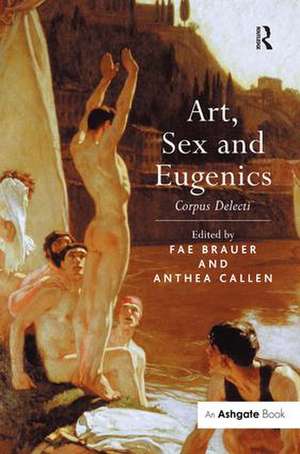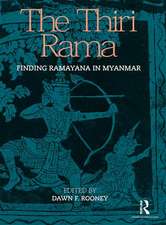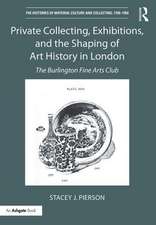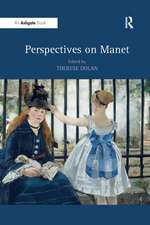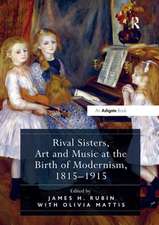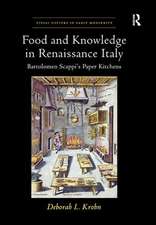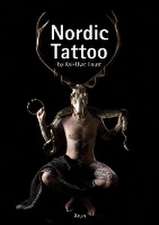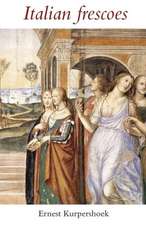Art, Sex and Eugenics: Corpus Delecti
Editat de Fae Brauer, Anthea Callenen Limba Engleză Hardback – 28 noi 2008
| Toate formatele și edițiile | Preț | Express |
|---|---|---|
| Paperback (1) | 469.34 lei 43-57 zile | |
| Taylor & Francis – 19 oct 2016 | 469.34 lei 43-57 zile | |
| Hardback (1) | 1067.35 lei 43-57 zile | |
| Taylor & Francis – 28 noi 2008 | 1067.35 lei 43-57 zile |
Preț: 1067.35 lei
Preț vechi: 1301.64 lei
-18% Nou
Puncte Express: 1601
Preț estimativ în valută:
204.26€ • 211.96$ • 170.73£
204.26€ • 211.96$ • 170.73£
Carte tipărită la comandă
Livrare economică 17-31 martie
Preluare comenzi: 021 569.72.76
Specificații
ISBN-13: 9780754658276
ISBN-10: 0754658279
Pagini: 316
Dimensiuni: 156 x 234 x 23 mm
Greutate: 0.82 kg
Ediția:1
Editura: Taylor & Francis
Colecția Routledge
Locul publicării:Oxford, United Kingdom
ISBN-10: 0754658279
Pagini: 316
Dimensiuni: 156 x 234 x 23 mm
Greutate: 0.82 kg
Ediția:1
Editura: Taylor & Francis
Colecția Routledge
Locul publicării:Oxford, United Kingdom
Cuprins
Contents: Introduction: making eugenic bodies delectable: art, 'biopower' and 'scientia sexualis', Fae Brauer; Improper moves: Maori haka and racial destiny, Roger Blackley; The art of scientific propaganda, Shawn Michelle Smith; Eroticizing Lamarckian eugenics: the body stripped bare during French sexual neoregulation, Fae Brauer; Man or machine: ideals of the labouring male body and the aesthetics of industrial production in early 20th-century Europe, Anthea Callen; 'Desiring skin': eugenics, trauma and acting out of masculinities in British inter-war visual culture, Gabriel Koureas; 'The proper peep': conflicting female ideals under German National Socialism, Lorettann Gascard; Bolshevism and 'sexual revolution: visualising new Soviet woman as the eugenic ideal, Pat Simpson; Future perfect? The elusive 'ideal type', Christina Cogdell; Bibliography; Index.
Notă biografică
Fae Brauer is Research Professor in Visual Theory at the University of East London, Senior Lecturer in Art History and Theory at The University of New South Wales College of Fine Arts and author of many book essays and articles on visual cultures.
Anthea Callen is Emeritus Professor of Visual Culture at the University of Nottingham and Research Associate at the University of Warwick Institute of Health. She has published extensively on Impressionism and late nineteenth-century culture, her most recent books being The Spectacular Body: Science, Method, and Meaning in the Work of Degas and The Art of Impressionism: Painting Technique and the Making of Modernity.
Anthea Callen is Emeritus Professor of Visual Culture at the University of Nottingham and Research Associate at the University of Warwick Institute of Health. She has published extensively on Impressionism and late nineteenth-century culture, her most recent books being The Spectacular Body: Science, Method, and Meaning in the Work of Degas and The Art of Impressionism: Painting Technique and the Making of Modernity.
Recenzii
Prize: Best Edited Book or Anthology for 2008, awarded by the Art Association of Australia and New Zealand (AAANZ)
'This pioneering volume addresses a vitally important topic, and one that is at the cutting edge of research in history of art and visual culture. The geographical range of the contributions, from Soviet Russia to the South Seas, is splendid, and the essays present fascinating visual material that has hitherto remained hidden. This book provides an agenda for future research in the field.' Michael Hatt, University of Warwick, UK
'A winning combination of stylish language and analytic insight, this book reassesses the art of eugenics. Here, artworks are discussed as social propaganda. Images of the perfect eugenic body take center-stage as the authors reveal how beauty and athleticism played a key role in promoting an ethos of wholesome heterosexuality during the early twentieth century in countries as culturally and politically diverse as France, Germany, Russia, New Zealand, America, and Britain. The healthy body was put on display through popular art - and by these subtle means individuals learned to focus their sexual desire on the perfect body, the "corpus delecti" of the subtitle and to disparage other bodies, those bodies steeped in racial prejudice. This compelling study shows how art and sex provided a double-whammy that reinforced racist and eugenic doctrines that once held powerful sway.' Janet Browne, Harvard University, USA
'This pioneering volume addresses a vitally important topic, and one that is at the cutting edge of research in history of art and visual culture. The geographical range of the contributions, from Soviet Russia to the South Seas, is splendid, and the essays present fascinating visual material that has hitherto remained hidden. This book provides an agenda for future research in the field.' Michael Hatt, University of Warwick, UK
'A winning combination of stylish language and analytic insight, this book reassesses the art of eugenics. Here, artworks are discussed as social propaganda. Images of the perfect eugenic body take center-stage as the authors reveal how beauty and athleticism played a key role in promoting an ethos of wholesome heterosexuality during the early twentieth century in countries as culturally and politically diverse as France, Germany, Russia, New Zealand, America, and Britain. The healthy body was put on display through popular art - and by these subtle means individuals learned to focus their sexual desire on the perfect body, the "corpus delecti" of the subtitle and to disparage other bodies, those bodies steeped in racial prejudice. This compelling study shows how art and sex provided a double-whammy that reinforced racist and eugenic doctrines that once held powerful sway.' Janet Browne, Harvard University, USA
Descriere
Exposing uncanny resemblances between eugenic sexual management and body imagery in France, Britain, Communist Russia, Nazi Germany and America well before and after the Second World War, this book reveals how art and sex promoted the eugenic quest for the perfect body. Ultimately the collection establishes that art inculcated sexual desire for procreative heterosexuality with the corpus delecti - the healthy, wholesome delectable body sanctioned by eugenics for genetically improving the Western race.
